
LibreELEC 9.0 Alpha Kodi 18 Leia-focused Linux distro for Raspberry Pi and PC is here
Kodi is great software for consuming media, but the best way to experience it is with a Linux distribution that focuses on it. If you aren't familiar, LibreELEC is one such distro -- it allows the user to focus exclusively on Kodi without any distractions. Best of all, it doesn't just run on traditional PC hardware, but the Raspberry Pi too. Yes, by leveraging an inexpensive Pi device, you can create a powerful media box for your television.
Today, the first Alpha of LibreELEC 9.0 becomes available for download. This follows the recent release of Kodi 18 Leia preview, and yes, LibreELEC 9.0 is based on Leia.
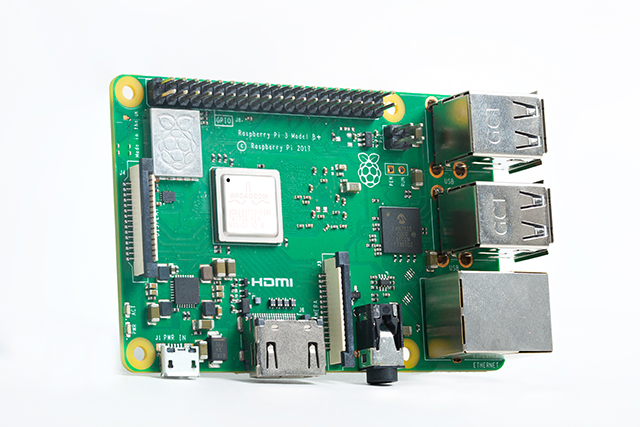
Debian-based Raspbian Linux distribution for Raspberry Pi gets major update
Computer hardware is useless without software. As cool as the diminutive Raspberry Pi computers are, for instance, they are just paperweights until you install an operating system. The little computers can run many OSes -- including an IoT variant of Windows 10 -- but really, Linux makes it shine.
One of the most popular Linux-based operating systems for Raspberry Pi is the Debian-based Raspbian. This is the "official" distribution for the Pi hardware, and today, it gets a major update. The Chromium web browser gets bumped up to version 65, while a new and faster PDF viewer, called qpdfView, replaces Xpdf. More importantly, the operating system gets two big additions -- a new setup wizard and recommended software program.

LibreELEC (Krypton) 8.2.4 Kodi-focused Linux distro is ready for Raspberry Pi 3 Model B+
If you want a convenient solution for playing media, Kodi should be at the top of your list. The free and open source media center is cross-platform, meaning it can run on most operating systems.
The best way to experience Kodi, however, is when it is the focus of a Linux-based operating system. For example, LibreELEC exists solely to run Kodi. Its lightweight nature allows it to run on fairly meager hardware, including Raspberry Pi. Today, a new version of LibreELEC is released. The main reason for this update is to add support for the newly released Raspberry Pi 3 Model B+.

Raspberry Pi 3 Model B+ launches! Faster, with dual-band 802.11ac Wi-Fi and Bluetooth 4.2
For the past three years, the Raspberry Pi Foundation has released new products around its birthday (28 February). It didn’t this year due to snow and other reasons, but a fortnight later -- on Pi Day -- it’s time for the wraps to come off the latest Raspberry Pi.
The Raspberry Pi 3 Model B+ (Raspberry Pi 3B+ for short) is the successor to the Raspberry Pi 3 Model B, and improves on that device in a number of ways, while keeping the same low price ($35).
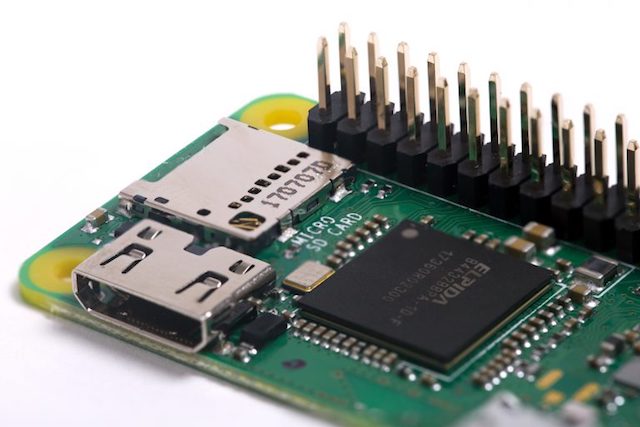
Raspberry Pi Zero WH has pre-soldered header
In a surprising announcement, a new Raspberry Pi model appears! With little fanfare, the "Raspberry Pi Zero WH," as it is called, becomes an official variant of the diminutive Zero W.
While it is technically not entirely new, it is still an exciting new model nonetheless. You see, the "H" seems to indicate "header" as this is a Raspberry Pi Zero W with a GPIO header soldered on. If you have a need for a Zero W with these pins, but don't have soldering skills (or don't have the time to do it yourself), this could be the ideal Pi for you.

Vivaldi browser now available for Raspberry Pi and other ARM based Linux devices
Vivaldi, the new web browser from Jon S. von Tetzchner, the former co-founder of Opera, is already available for Windows, macOS and Linux (x86/x86_64), but from today you can now run it on ARM based Linux devices, including Raspberry Pi.
The speedy browser offers useful built-in functionality such as tab grouping, screenshot capture, and ability to take notes. Part of Vivaldi’s appeal is it’s highly customizable, and the experimental new build offers even more options for tinkerers.
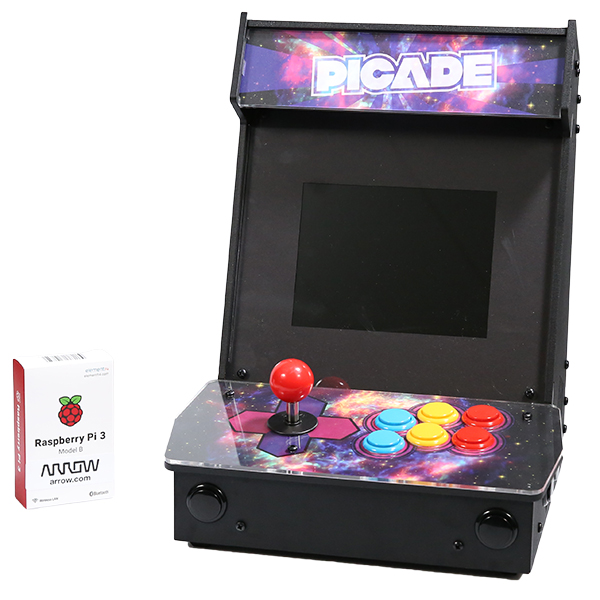
3 clever gift ideas using Raspberry Pi
While thoughts of savory roast turkey and green bean casserole may come to mind when you hear mention of Raspberry Pi this holiday season, the credit card-sized computer is more likely to make you drool over techie gift ideas.
If you want to get creative with your gift-giving this year -- and impress your friends and family with your technical skills -- consider tackling one of these projects that are perfect for RasPi beginners. From AI-enabled teddy bears to mini retro game arcades, these are memorable gifts that anyone would be happy to find under the tree.

Kodi Linux distro LibreELEC gets final Krypton update
LibreELEC is a fantastic open source Linux-based operating system designed to run Kodi. It is particularly well suited for devices like Raspberry Pi. If you want to build your own Kodi box, it's ideal.
Today, the LibreELEC team releases a new build that it expects will be the last from the current branch -- going forward the focus will be firmly on LibreELEC (Leia) 9.0 development.
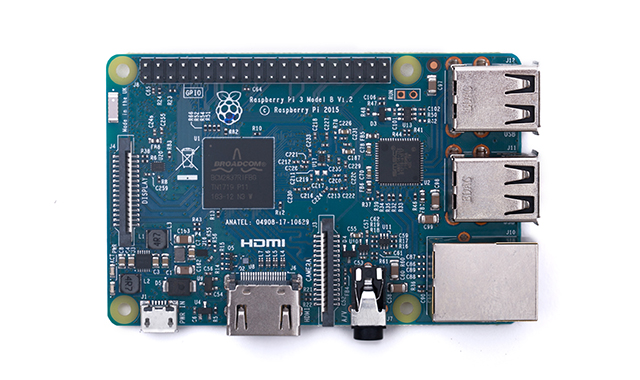
Beautiful blue Raspberry Pi 3 goes on sale, but you (probably) can't buy it
The Raspberry Pi is a fantastic, credit-card sized barebones computer that comes in a choice of models and sizes, all at very affordable prices.
Today the Raspberry Pi Foundation announces it’s releasing a brand new blue model of the Raspberry Pi 3. Want to buy it? We’ve some bad news for you.

LibreELEC 8.2.0 Kodi-focused Linux distro is here, but Raspberry Pi versions are pulled
While many folks prefer to leverage legal streaming services like Netflix on hardware such as Apple TV and Roku nowadays, other people still prefer accessing locally stored media files. Is that concept dying? Yeah, but it will be a while before it is dead completely. Not to mention, music and movie pirates will keep locally stored downloaded media content alive for quite some time.
Don't get me wrong, not everyone that watches locally stored media files are pirates, but some certainly are. Whether you are accessing downloaded media or streaming content using an addon, the Kodi media center is a great way to experience it. Taking it a step further, a Linux-based operating system that exists just to serve Kodi is even better. Today, one of the best such distros, LibreELEC, gets a major update to version 8.2.0.
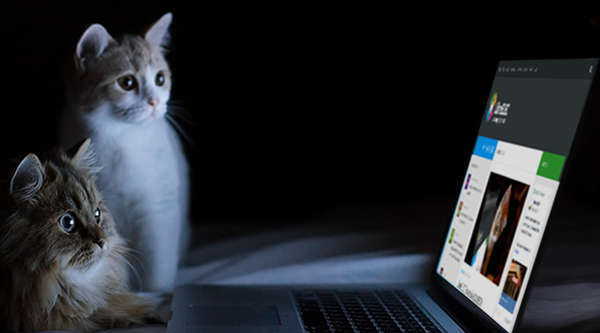
Download new LibreELEC Krypton -- Kodi TV and movie addons like Exodus and Covenant should work
Linux and Kodi go so well together. If you want to set up a lightweight media center distribution, you should look no further than LibreELEC. This open source Linux-based operating system exists solely to run Kodi, making it work on fairly meager hardware, such as a Raspberry Pi.
Today, a new LibreELEC Krypton version gets a release -- 8.1.1 BETA. If you are worried about compatibility with your favorite addons such as Exodus and Covenant, don't -- they should work absolutely fine. Of course, if you do encounter any issues, it can be very easy to go back. Might as well have the latest and greatest, right?

Raspberry Pi gets a major OS update -- download Raspbian Stretch now!
Raspberry Pi’s main operating system, the Debian-based Raspbian, gets updated every two years or so. The last release, Jessie, came out in 2015, and now its replacement has arrived. Say hello to Stretch.
In case you were wondering, Debian releases are named after characters from Disney Pixar’s Toy Story trilogy. Jessie was the cowgirl introduced in Toy Story 2, and Stretch is a purple octopus from Toy Story 3. So what's new in the updated release?

Raspberry Pi founder Eben Upton talks sales numbers, proudest moments, community projects, and Raspberry Pi 4 [Q&A]
Here at BetaNews, we’re big fans and supporters of the Raspberry Pi. The super-affordable ARM GNU/Linux computer has brought programming back into schools (and beyond) and enjoyed staggering success, becoming the most successful British computer of all time, in just a few short years.
I chatted with Eben Upton, creator of the Raspberry Pi, about his success, most memorable highlights, and plans for the future.
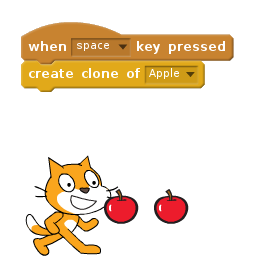
Scratch 2.0 now available for Raspberry Pi, but there is a catch
Scratch provides a great introduction to programming for all ages, which is why it's included in Raspbian, the operating system that powers the Raspberry Pi. You can also use it to write code to control and respond to components connected to the GPIO (General Purpose Input and Output) pins on a Pi, and there’s a new version of the tool available from today.
Interacting with GPIO pins in Scratch 2.0 is easier than before, with custom blocks for setting the pin output (and getting the current pin state) replacing the old text-based broadcast instructions, which is a big step in the right direction. However, the tool can be a little slow for some operations, and there's a bigger issue to be aware of -- not all models of the Pi will be able to run it.
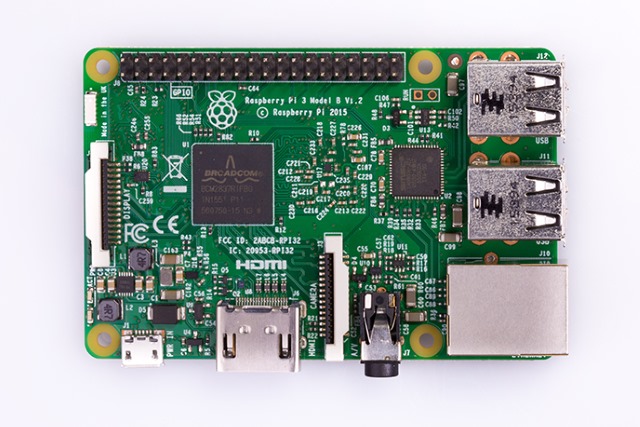
Raspberry Pi devices transformed into cryptocurrency miners by Linux malware
The words "Linux" and "malware" don’t tend to belong in the same sentence, but a new strain called Linux.MulDrop.14 is infecting Raspberry Pi devices. Infected machines are used to mine cryptocurrency for the malware's author, and it take advantage of poor security to generate money from nothing.
The good news is that the malware is fairly simple, and its spread is dependent on the laziness of Pi owners.
